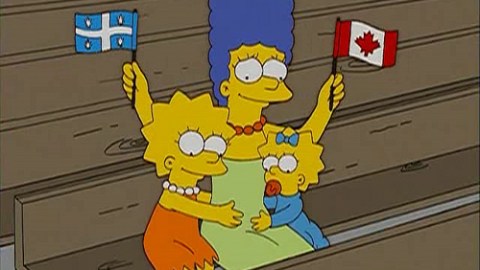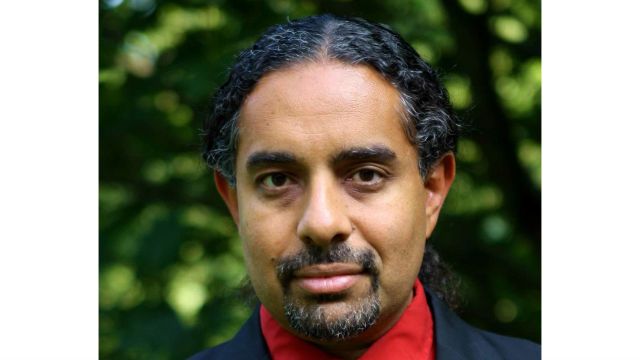Canada: Land of the Free

“It’s so clean and bland – I’m home!” –Marge Simpson, on arriving in Canada
This post originally appeared in The Daily Caller.
With its mild manners and measured expectations, Canada has long served as North America’s straight man. From Michael Moore’s Canadian Bacon to The Simpsons to South Park, American comedy has tapped this area like the oil sands.
On one of their several sojourns to the Great White North, the Simpson clan pass by the set of a film called Canadian Graffiti, in which a street punk spray-paints three words on a wall: “Obey the rules.”
And this is largely the rap on Canadians: Even when they try to be edgy, their deference and decency win out, such that their rebellious affectations have all the authenticity of a hard-core Christian rock band.
But Canada is far from American stereotypes of socialism, centralization and obeisance, at least in relative terms. By almost any measure, Canada is a freer country than the USA.
Economically, the contrast is stark, for those who care to see. While folks reflexively state that Canadian taxes are higher than those of the United States, corporate and personal rates are lower up north, as is effective treatment of investment income. Moreover, Canadians and their families who reside abroad are not subject to the worldwide taxation and reporting requirements imposed on Americans by the IRS.
When Canada was spared the worst of the 2008 economic collapse, American liberals spoke wistfully of comprehensive Canadian financial regulations, as though this were what preserved Canucks’ multi-colored money. In reality, Canada’s good luck was a function of culture, not laws. Canadian banks had limited their exposure to misguided mortgage-backed securities, consistent with the country’s generally cautious investment philosophy.
Meanwhile, America responded to the crash by providing its oppressive Sarbanes-Oxley financial legislation with an equally Byzantine follow-up, Dodd-Frank.
For decades, Americans have debated the merits of Canada’s “socialized” health care, yet much of what Americans think they know about the Canadian system is wrong. Yes, Canada nominally maintains a single-payer plan, with taxpayers footing the tab for universal coverage, and there are prohibitions against the private purchase of services. In reality, about one-third of medical procedures are purchased privately and Canadians with the means often go to the United States for treatment (which has lately begged the question, if Obamacare is implemented, where will Canadians go for their health care?).
Ironically, in this era of mass communication, freedom of speech is hard to come by, and Canada is no exception. Even so, with the abolition of the Canadian Criminal Code’s Section 13, which punished so-called “hate speech,” Canada leads the Western world in reclaiming the right of individual free expression from the ravenous maw of political correctness. Such legislation was nowhere near unique to Canada, as charges of “hate speech” are a ubiquitous tool of the worldwide Left, intended to silence opposition while elevating their approved opinions to the level of law. But the fact that Canada has abolished this shameful codification of censorship reveals a tendency toward renewal of liberty that the United States, and other nations, would do well to emulate.
As to day-to-day freedoms, and the likelihood of encounters with armed agents of the government, Canada is not immune to excesses by its authorities. Two quick examples: In 2010, during the G20 conference in Toronto, police brutalized civilians and conducted mass incarcerations of innocent bystanders; and, subsequent to the recent floods in Calgary, police were observed entering private homes and confiscating legally owned firearms.
But these are, thankfully, notable exceptions. Canada lacks the institutional and cultural predilection for ubiquitous policing and routine incarceration, such as exists in the United States.As the greatest columnist in the world, Mark Steyn (also a Canadian, not coincidentally), has repeatedly observed of the US, “every tinpot makework paper-shuffling bureaucracy now runs around pretending to be Seal Team Six.”
The Department of Education dispatches SWAT police to enforce student-loan compliance, the IRS sends militarized thugs to make collections, and that’s before even contemplating the enormity of the Department of Homeland Security, the NSA, and so on.
While representing five percent of global population, the United States holds twenty-five percent of all the prisoners in the world, and incarcerates people at a rate 13 times greater than the nation’s population growth. Canada, meanwhile, reserves harsh criminal penalties for crimes like murder and holding up the Tim Horton’s drive-thru lane.The relationship between Canada and the United States, while imperfect, represents one of the great successes of international affairs. Even so, relatively speaking, the true Land of the Free is the Great White North.
Theo Caldwell, an investment advisor in the United States and Canada, hosts TV’s Global Command Centre – [email protected]





